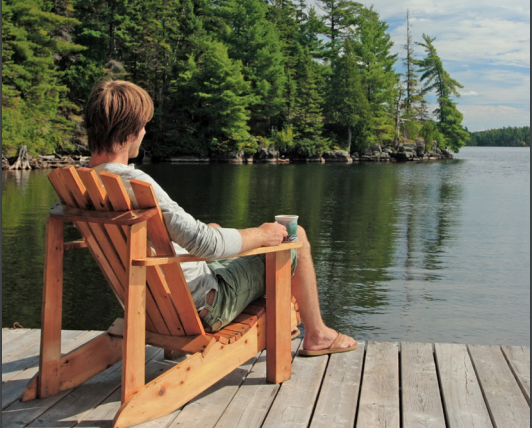Climate change impacts everyone, but when you own property on a shoreline or in a floodplains, the impacts can be substantial. The Federation of Ontario Cottage Owners has responded with a new report that encourages waterfront property owners to take a can-do approach to climate change adaptation.
The report entitled, Managing Your Waterfront Property in a Changing Climate explains the many ways cottage owners may be personally affected by climate change and provides practical steps to improve the resiliency of waterfront property.
Terry Rees, executive director of the Federation of Ontario Cottagers said, “We thought it was important for people to what climate change means for their lakes, and to understand that they are in a position to do something about it.”
“As it so happens, we are having a record-breaking hot summer, and just last week, Toronto narrowly avoided two massive (and potentially expensive) rain events. It’s a global concern, but adaptation comes down to local decisions. It’s actually a personal issue,” said Rees.
Rees said that in his opinion much of the information about climate change that is shared leaves people feeling out of touch with what’s salient; yet, cottagers who have spent generations on their waterfront property are at the forefront of many of the changes that are being felt in Canada, including erosion, floods, invasive species, algae, and lyme disease.
They’ve got a breadth of experience over time, so they have seen the ebb and flow of seasonal changes, and they know that something is different. The guide is intended to make sense of the current science, explore what’s happening now and on the horizon, and the equip cottage owners with practical measures that they can do to increase their to these impacts.
The recommended actions include:
- naturalizing and enhancing shoreline areas;
- replanting areas that lack vegetation and maintaining those areas that already exist;
- Keep aquatic plant populations intact; and,
- improve a property’s health and biodiversity with native species,
“We need to double down on stewardship efforts to make sure our lakes are more resilient to climate change,” said Rees.
The guide was developed in partnership with the Ontario Ministry of Natural Resources and Forestry. The full report can be accessed online: https://foca.on.ca/managing-your-waterfront-property-in-a-changing-climate/













